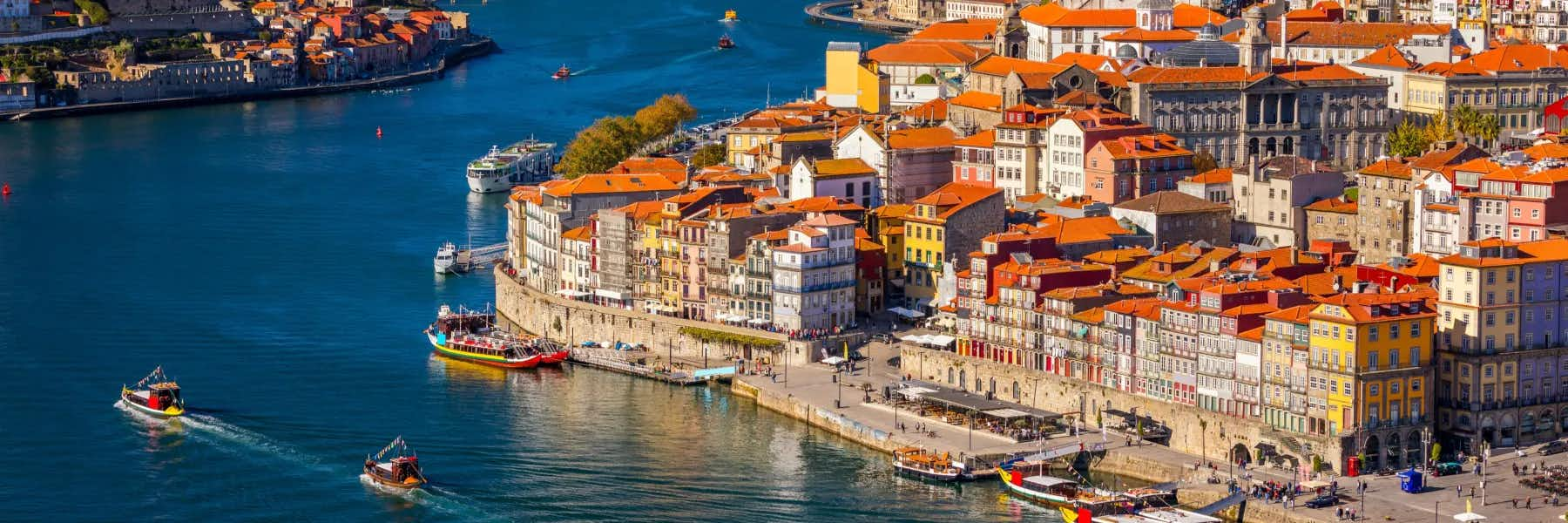Portugal has become one of the most popular destinations in Europe for retirees from North America, and for good reason. Boasting over 300 days of sunshine each year, affordable living and healthcare, a large expat network, stunning scenery and beaches, an easy visa process, and English is widely spoken.
But where is the best place to live in Portugal? Well, that depends on you and what you prefer.
Get Your Free Portugal Report Today!
Get Your Free Portugal Report Today!
Discover why we love a slower pace of life in Portugal and info on other European countries in our daily postcard e-letter. Simply enter your email address below and we’ll send you a FREE REPORT – Explore the Old World in Laidback Portugal.

By submitting your email address, you will receive a free subscription to IL Postcards, Overseas Dream Home, The Untourist Daily and special offers from International Living and our affiliates. You can unsubscribe at any time, and we encourage you to read more about our Privacy Policy.
Do you long for big city living with plenty of nightlife and culture or does the sound of the ocean call out your name? Want to awaken to the chime of the village church bells or the cackle of hens on your neighbors’ farm? Let’s have a look at some suggested places that you might like to live in Portugal, along with two to avoid.
Lisbon
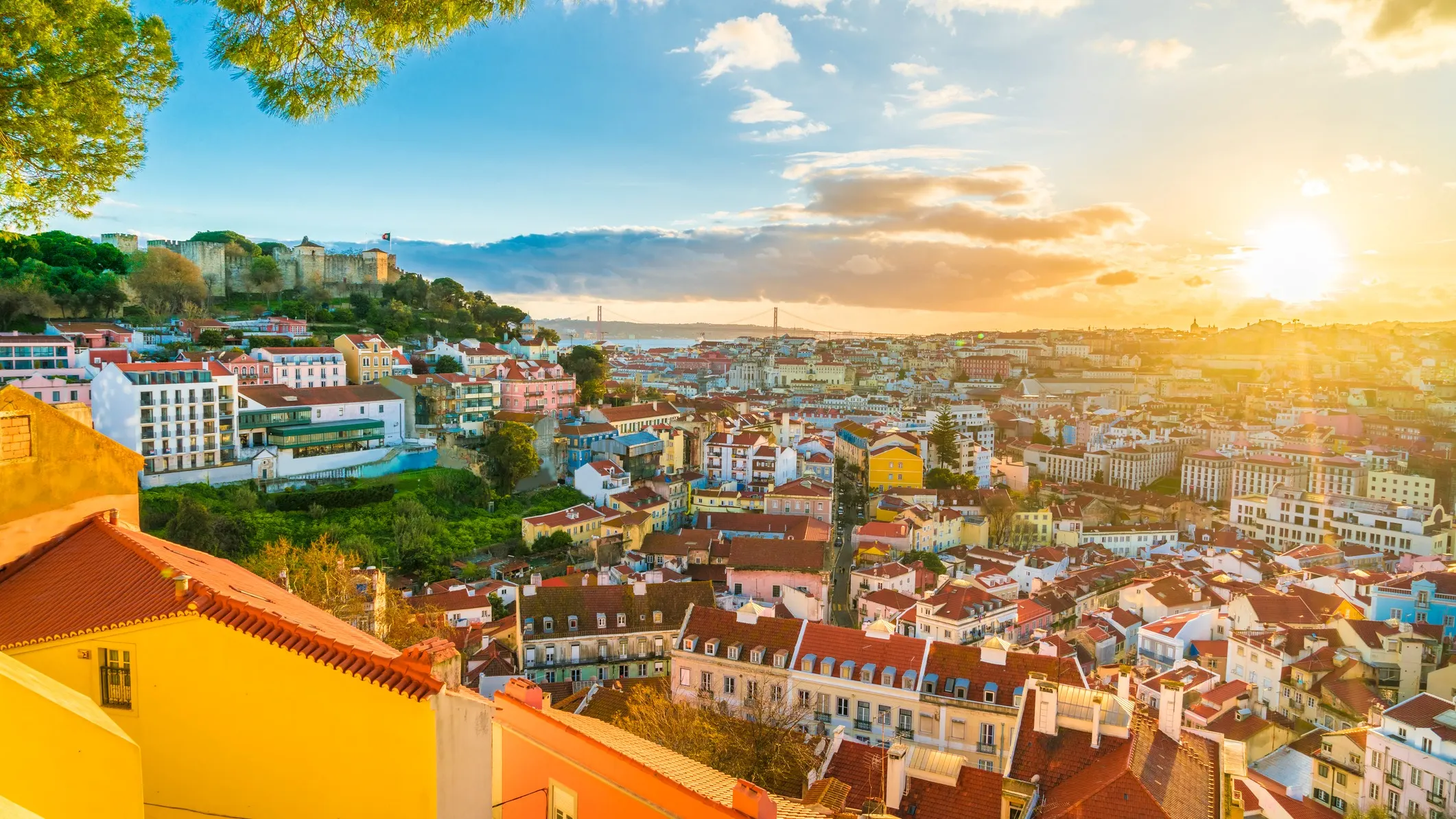
Portugal’s capital city of Lisbon has much to offer with its impressive city center, sunny yellow cable cars that climb the narrow streets, over 60 museums, an English-speaking theatre, family-friendly beaches, varied cuisine, and plenty of expats from around the world to hang out with. Lisbon combines old-world charm with all the modern conveniences needed to feel at home with some of the best weather in Europe. You will never be bored living here with the nearby beaches of Cascais, the fairy-tale village of Sintra, along with an international airport for easy access to the rest of the world.
Healthcare in Portugal is some of the best in the world, and with so many expats in Lisbon, it’s easy to find English-speaking doctors. Called the city built on seven hills, Lisbon’s quaint narrow streets can be hilly and slippery when wet. Big-city living comes at a cost anywhere in the world, and Lisbon is no exception.
Porto
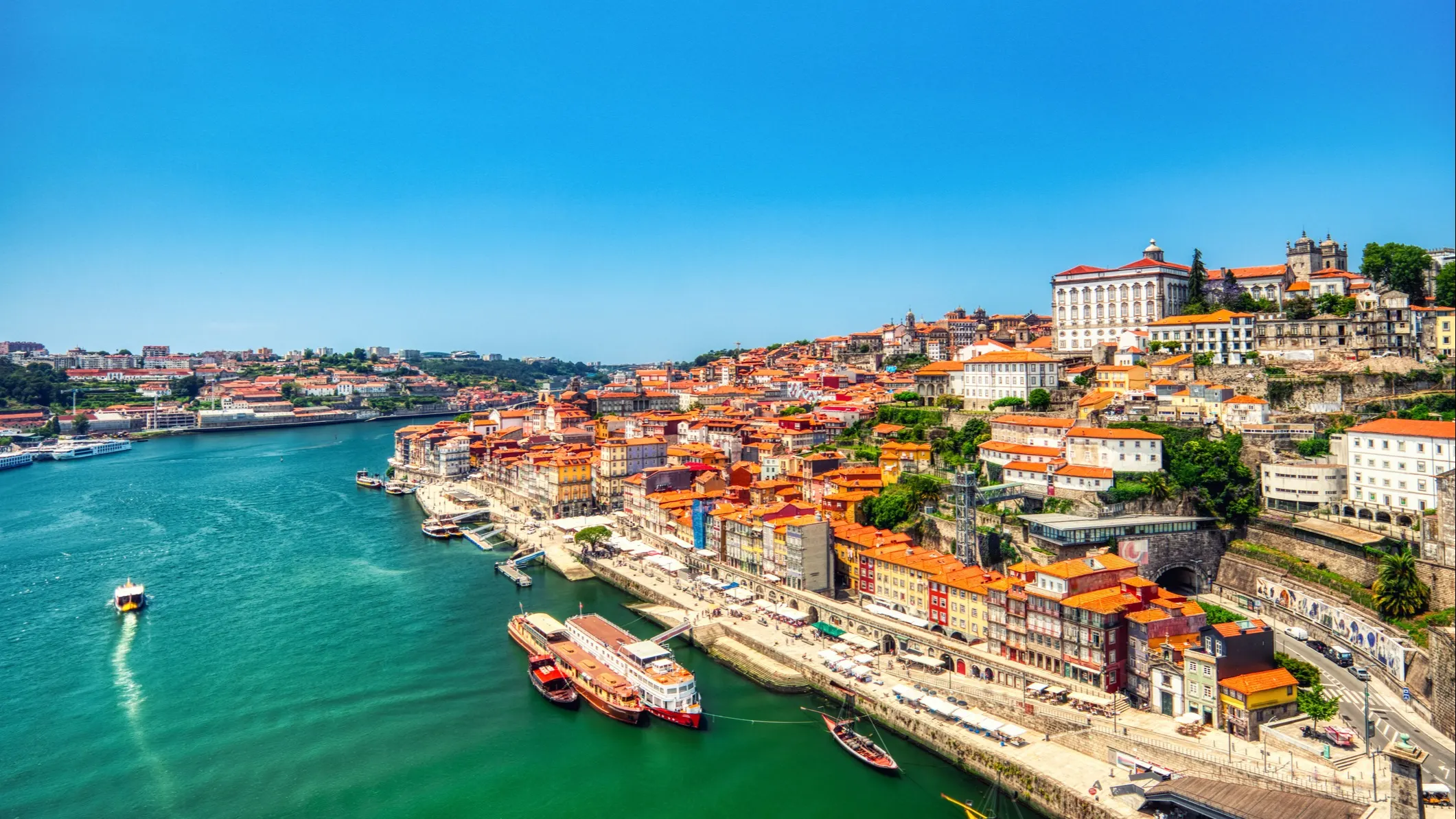
Portugal’s second-largest city, three hours north of Lisbon, is Porto. Situated on the Douro River, this is the port wine-making region of the country. Rich in culture and history, this is another part of Portugal where English is common, making it easy to fit in. From great shopping along Rua Santa Catarina to local cuisine, excellent healthcare, a large expat community, and a cooler climate, this could be the perfect place to call home. Plus, Porto has one of the country's three international airports, making it easy to visit friends and family back home.
Come prepared to navigate up and down hilly cobblestone streets in Porto, and like Lisbon, expect the cost of living to be a bit higher.
Silver Coast
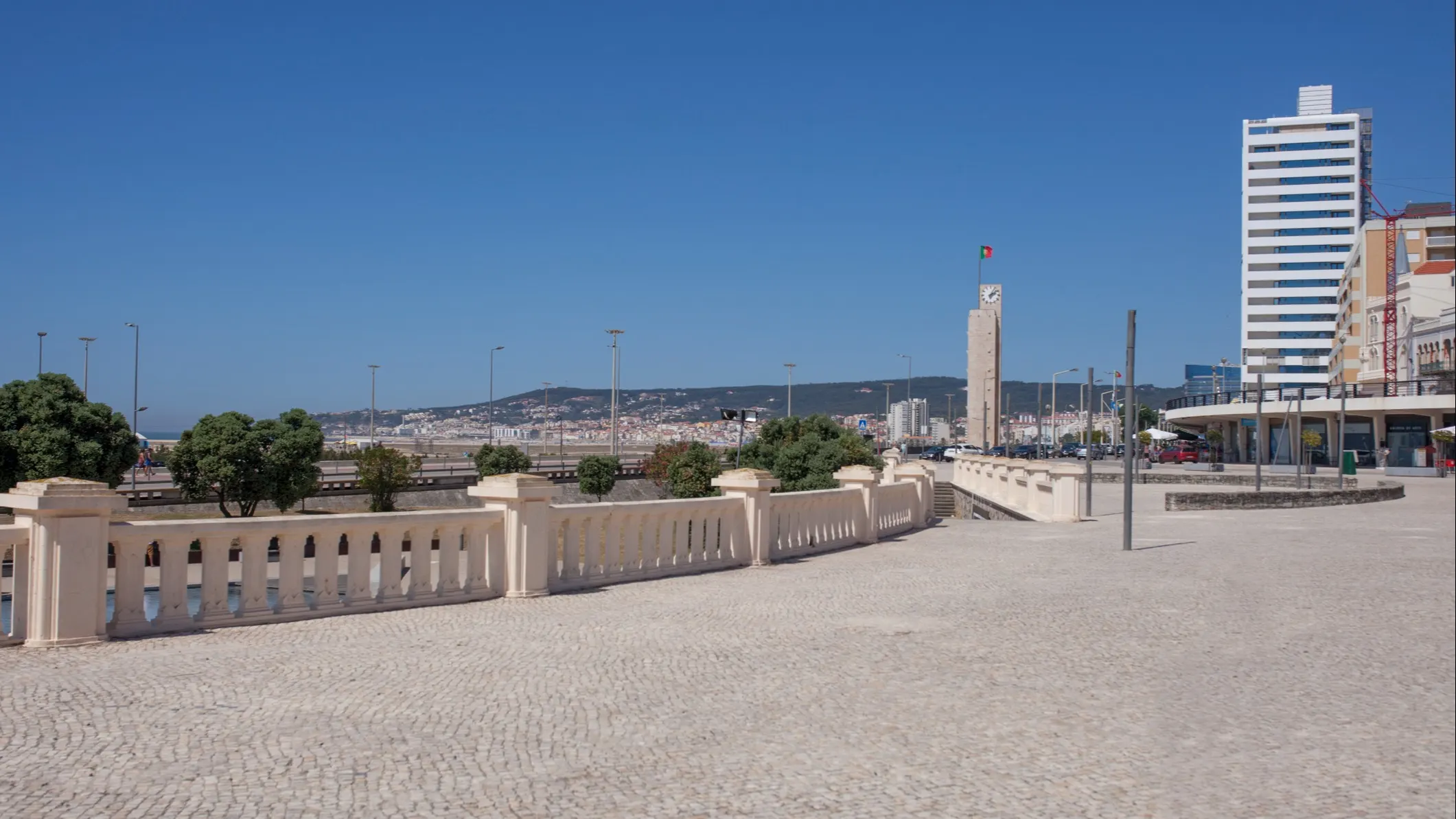
One hour north of Lisbon is the town of Caldas da Rainha, built around a thermal hospital, one of the oldest in the world. The lively old town features a daily fruit and vegetable market, a nearby fish market, and a weekly flea market just up the hill. This compact city has plenty of shopping from large grocery stores, a modern multi-level shopping center, a variety of cuisines, and a handful of museums. Dom Carlos Park is where locals and expats go to enjoy the walking trails, grab a bite to eat at the restaurant, or paddle a boat across the man-made lake. Caldas has a large expat community along with a public and private hospital plus clinics for all your healthcare needs.
The nearby beaches of Foz do Arelho and Nadadouro provide a welcome break on a hot summer day. The lagoon offers a safe place for those of all ages to enjoy tranquil waters or relax with friends at a waterfront cafe. Summer temperatures here are springlike, while winters are cold and rainy.
Lagos
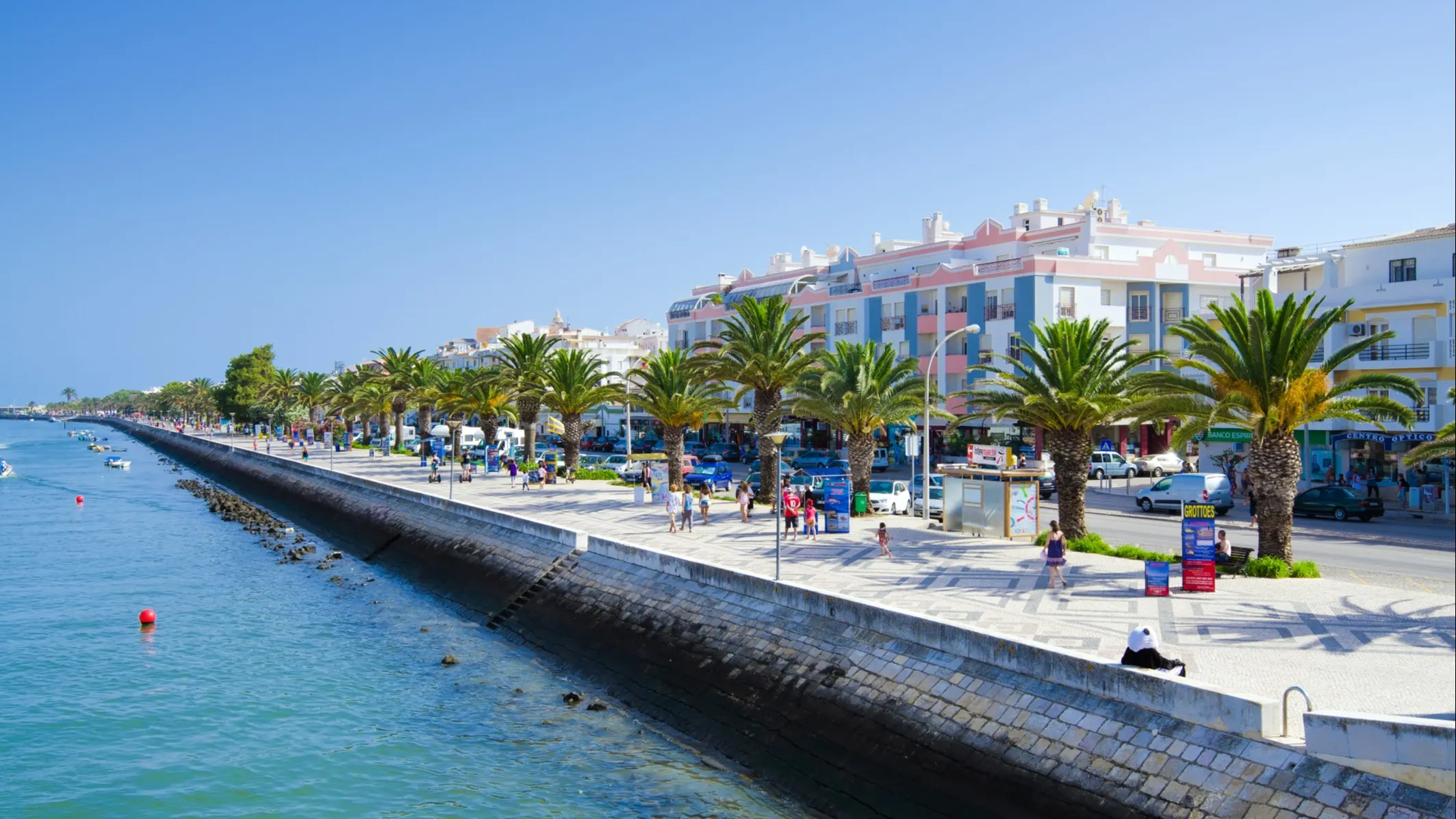
A few hours south of Lisbon is the Algarve region, which has some of the warmest weather in the country. The town of Lagos has retained much of its charm, with a tiled plaza in the old town and remnants of a fort perched along the waterfront. The coastline offers spectacular vistas of grottoes, rock formations, and caves that can be explored by hiring a boat or meandering along the paths.
There is no need to stress about learning Portuguese in Lagos, at least at first. British holidaymakers have long visited the Algarve, so English is spoken by almost everyone. Summers here are hot and dry, while winters are mild with some rain. Local shops and restaurants permeate the old town, while larger grocery stores can be found nearby. Excellent healthcare is never far away, and with plenty of expats, you will never be lonely.
Get Your Free Portugal Report Today!
Get Your Free Portugal Report Today!
Discover why we love a slower pace of life in Portugal and info on other European countries in our daily postcard e-letter. Simply enter your email address below and we’ll send you a FREE REPORT – Explore the Old World in Laidback Portugal.

By submitting your email address, you will receive a free subscription to IL Postcards, Overseas Dream Home, The Untourist Daily and special offers from International Living and our affiliates. You can unsubscribe at any time, and we encourage you to read more about our Privacy Policy.
Tavira
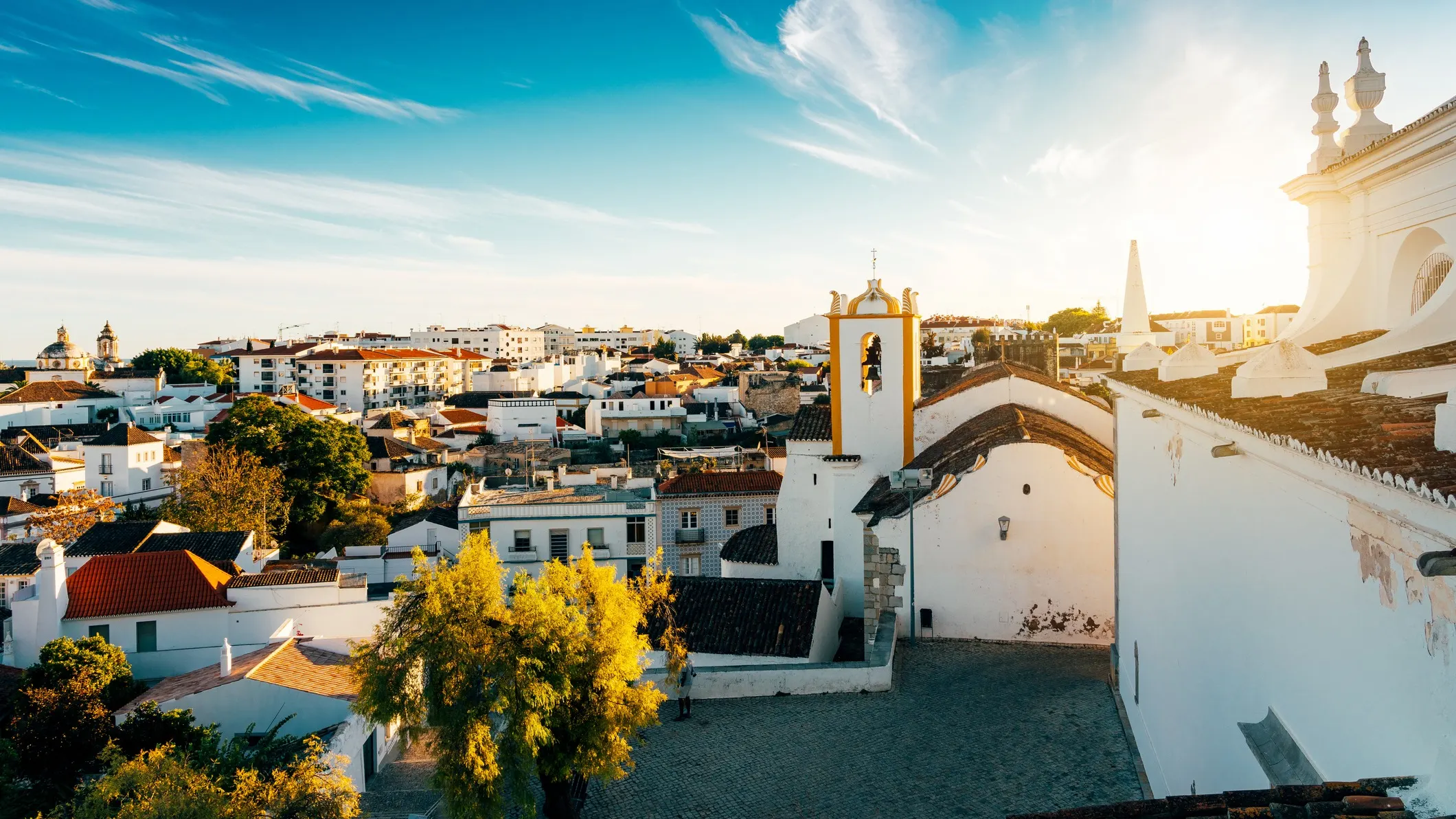
Another popular Algarve hotspot is Tavira. Located close to the Spanish border, Tavira has retained much of its old town with whitewashed houses decorated with colorful Portuguese tile.
A plethora of restaurants line the cobbled lanes along with grocery stores. Life here is as slow as the Gilão river that runs through it. Stroll along the old Roman bridge to admire the village or relax on nearby sun-drenched beaches. Many expats from North America and Europe have long called Tavira home, making it easy to fit in and get by speaking only English at first. Like the rest of the Algarve here you will find some of the best weather in the country. Local shops tend to cater to the British population, but Americans need only drive a few hours into Seville, Spain, to stock up on American goods at a Cosco warehouse.
Get Your Free Portugal Report Today!
Get Your Free Portugal Report Today!
Discover why we love a slower pace of life in Portugal and info on other European countries in our daily postcard e-letter. Simply enter your email address below and we’ll send you a FREE REPORT – Explore the Old World in Laidback Portugal.

By submitting your email address, you will receive a free subscription to IL Postcards, Overseas Dream Home, The Untourist Daily and special offers from International Living and our affiliates. You can unsubscribe at any time, and we encourage you to read more about our Privacy Policy.
Now, let’s have a look at a few places where settling in as an expat may not be so easy and, perhaps, should be avoided.
Portugal is one of the safest countries in the world, with no areas considered unsafe to live in. However, personal preferences play a significant role in choosing where to settle. While some might dislike the hustle and bustle of Lisbon or the summer crowds and heat in the Algarve, others may prioritize being near English speakers, quality healthcare, and shopping. The two places listed below as "to avoid" are simply my personal preferences, though both are beloved vacation spots. And yes, I speak from experience—I’ve lived in Portugal for six years and have traveled extensively, including to the areas mentioned.
Monsanto
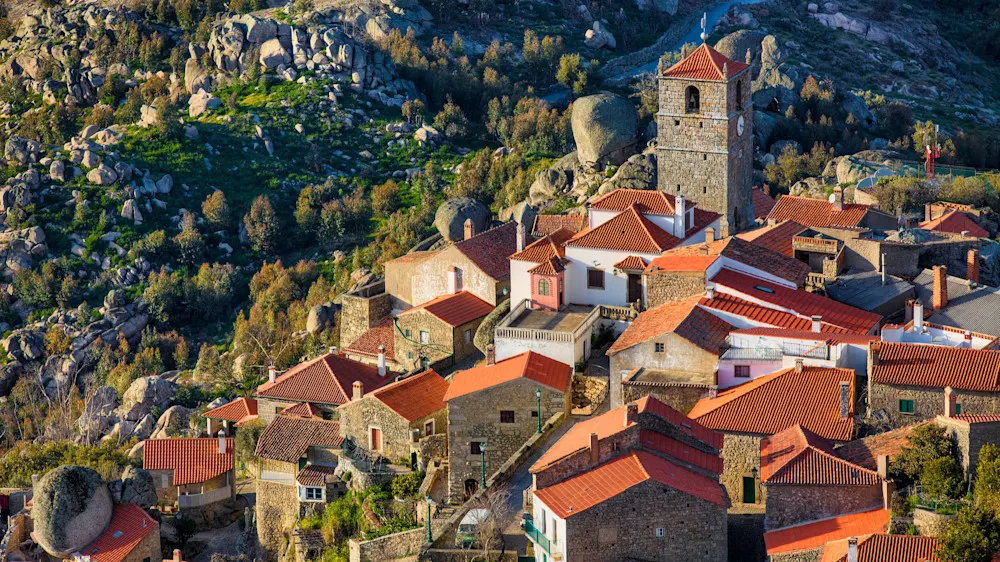
Considered by many to be the most Portuguese village in the country, this quaint little village is a delight to visit, but not a place I would recommend living. Granite homes are squeezed in, on, and around giant boulders that look as though they fell from the sky. The steep, rustic lanes are wide enough only for a donkey, and climb some 400 feet up to the pinnacle of the village where the remains of a castle still stand. A few local shops exist inside the cave-like structures where no English is uttered, and time seems to have stopped long ago. While locals here are used to seeing tourists, I doubt that there are any expats living among them.
Monsanto is just one of the 27 Aldeias do Xisto, or schist villages, where homes are constructed from flat, layered rock found locally. A visit to these magical spots is to step back in time and enjoy their slower pace of life, rustic surroundings, and language.
The Alentejo
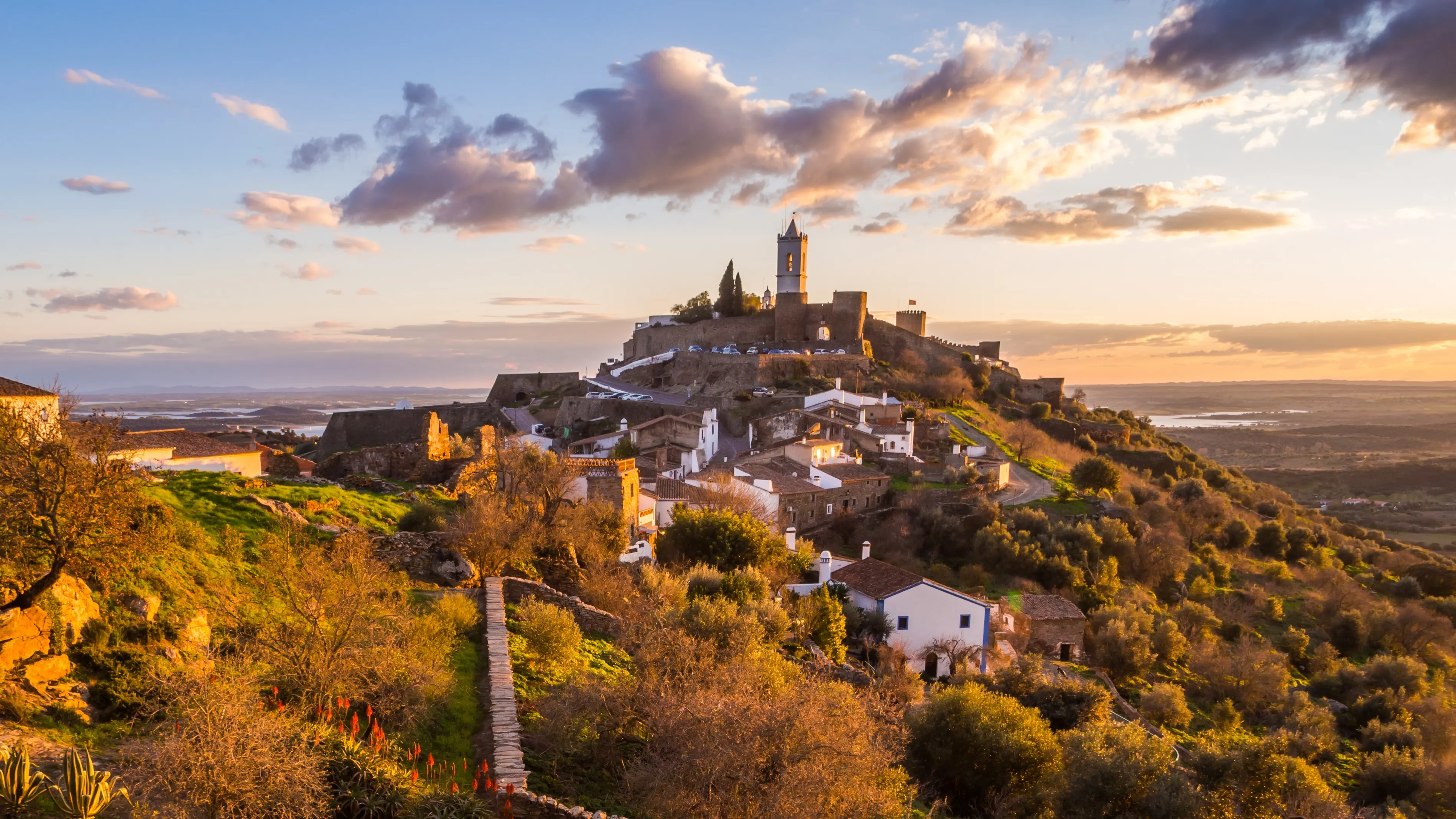
The Alentejo, in southern Portugal, is the largest region in the country, with vast plains that extend as far as the eye can see. Extreme temperatures are the norm here, with summer highs reaching well over 100 F, and winters bringing freezing, bone-chilling rains. This vast, rural region makes up 30% of Portugal but its rural countryside is sparsely populated, with less than 5% of the population. Home to walled cities, forts, a few sleepy villages and cities like Beja and Évora, this is the heartland, or breadbasket, of Portugal.
Far fewer expats call the Alentejo home compared to the Algarve, Lisbon, or Porto. To integrate here would require full immersion into the Portuguese lifestyle for those fluent in the Portuguese language. Most English-speaking expats underestimate the number of years required to achieve fluency, typically four to seven. Therefore, expats find they require support from other expats to learn how to navigate the system with things such as resident visas, taxes, healthcare, driver’s license exchange, and finding the essentials to settle into life in Portugal. The vastness of the Alentejo would make finding other expats a challenge.
For holidays, though, the Alentejo is the ideal spot to escape the tourist crowds, enjoy some fresh country air, and stop to smell the wildflowers.
Get Your Free Portugal Report Today!
Get Your Free Portugal Report Today!
Discover why we love a slower pace of life in Portugal and info on other European countries in our daily postcard e-letter. Simply enter your email address below and we’ll send you a FREE REPORT – Explore the Old World in Laidback Portugal.

By submitting your email address, you will receive a free subscription to IL Postcards, Overseas Dream Home, The Untourist Daily and special offers from International Living and our affiliates. You can unsubscribe at any time, and we encourage you to read more about our Privacy Policy.
